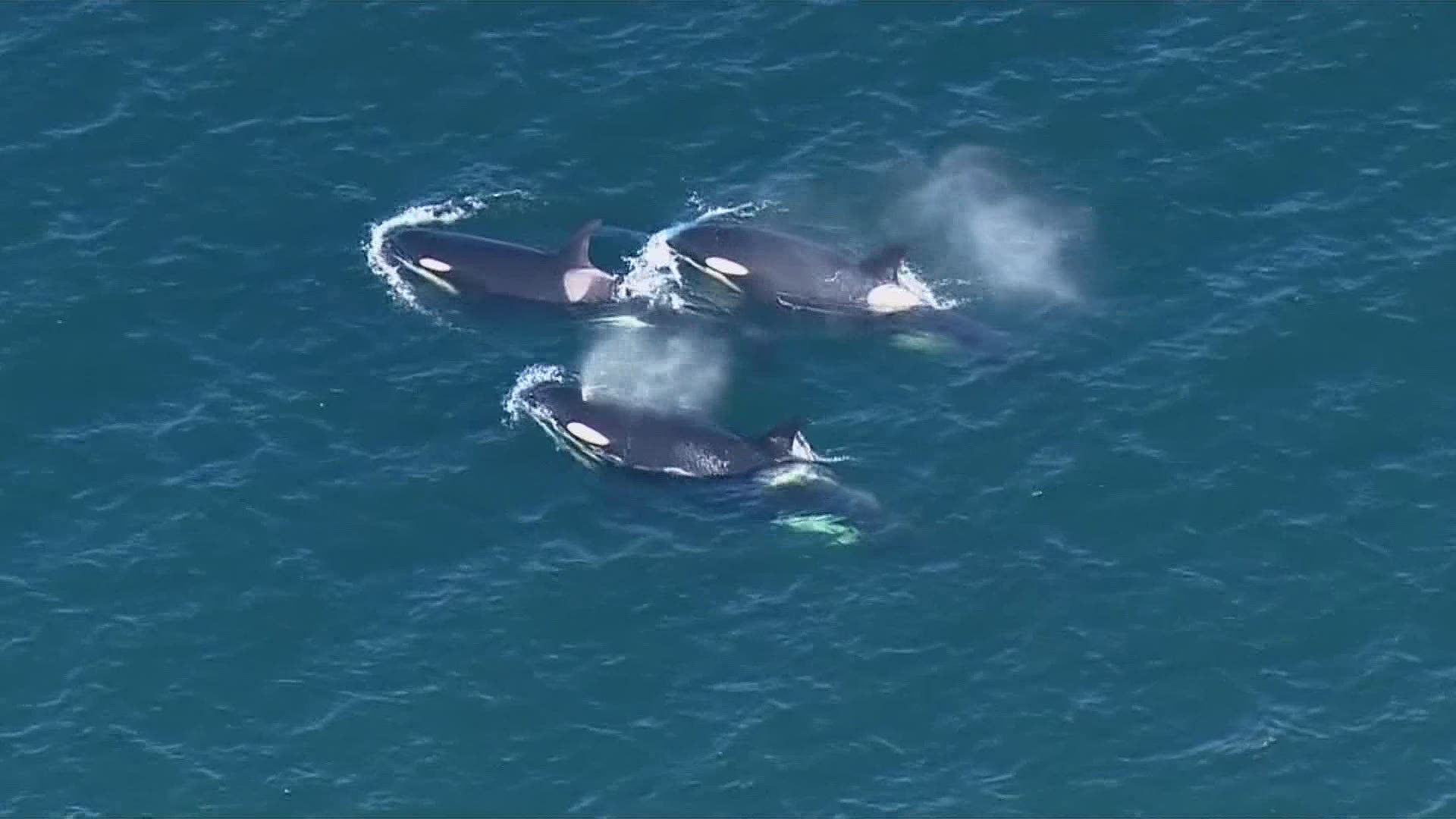SEATTLE — Puget Sound, along with the rest of the Salish Sea, has passed a grim milestone for orca fans.
It has been more than 100 straight days since the famed J-Pod was seen in the inland waters of Washington and British Columbia.
The last time J-Pod was seen in the area was on April 10, near the San Juan Islands.
K-Pod and L-Pod, the other two orca families who have frequented the Salish Seas for decades, have also been mostly absent from the inland waters as of late.
K-Pod made a brief appearance on July 1 before heading back to the coast, but other than that, K-Pod and L-Pod have not been documented in the Salish Sea since late February.
According to the Orca Behavior Institute, the closest the three groups of orcas have come was Swiftsure Bank, which is near the western end of the Strait of Juan de Fuca, earlier this month.
“We published a study in 2018 showing the declining spring presence of the Southern Residents and its correlation to the crashing of the Fraser River Chinook salmon runs,” said Monika Wieland Shields, director of the Orca Behavior Institute.
Historically, May through September has been the peak season for orca activity, with daily appearances of the endangered killer whales being the norm.
In fact, according to Dr. Michael Weiss, a biologist with the Center for Whale Research, this is the first time since the Orca Survey began in 1976 that the Salish Sea has gone 100 days without a visit from the most “resident” of its three orca pods.
“This is a sure sign of dire, drastic changes in the Salish Sea and Fraser River ecosystems,” said Weiss.
The Orca Network’s Cindy Hansen said there is no point for the orcas to visit the Salish Sea with the declining presence of the Fraser River Chinook salmon, with prey likely being more available on the coast.
“As much as we miss seeing the Southern Residents, we all hope that they are finding plentiful food off the coast, enough for the population to grow and thrive,” she said. “They used to spend their summers here, having greeting ceremonies, and socializing with one another. The lack of salmon may be impacting more than their health and ability to reproduce. It may also be depriving them of an important part of who they are as a society.”
"It represents a huge change to their behavior, a huge disruption of their traditional patterns of movement, which really does, I think, serve as an alarm bell that we're not just potentially looking at the very slow extinction of this unique population," Weiss said. "But we're seeing a loss of that cultural tradition that this population has had for many generations."
Weiss said CWR does expect to be able to complete its annual survey of the population, which they hope will come 'home' as August approaches.
Shields said that even after the Orca Behavior Institute’s 2018 study, she and her colleagues didn’t think the orcas’ summer visits would diminish so soon and that they never thought they’d see an absence of over three months.
Meanwhile, other whale species are still making regular visits to the inland waters. Bigg’s killer whales, humpback whales, minke whales and occasional groups of gray whales are being seen in the Salish Sea so far this summer.
A study published in March found that the endangered orcas in the region typically feed almost exclusively on Chinook salmon in the inland waters during the summer months. Most of that salmon comes from Canada’s Fraser River.
The lack of Fraser River Chinook salmon is believed to be caused by more difficult spawning conditions due to environmental changes and habitat degradation.
In 2019, groups called for leaders to act and replace floodgates along the Fraser River and clean up known contamination hotspots in Puget Sound and in the Fraser River delta, among other things.
“There are whales here, but there is no replacing the Southern Residents,” said Shields. “We all feel it. We trust that they are doing what they need to do, but it is not the same without them.”

